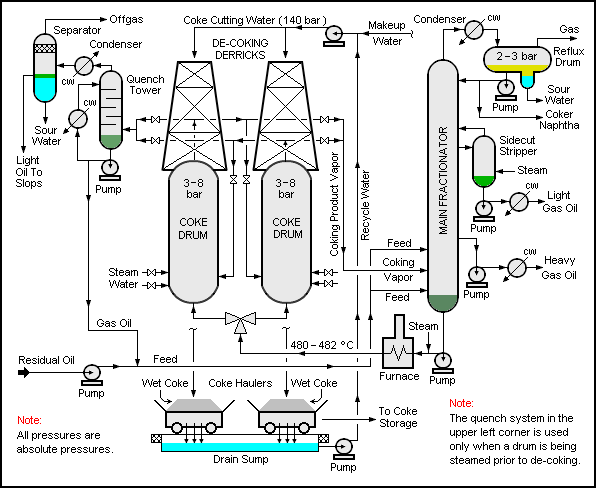Coker unit
A coker or coker unit is an
gas oils, and petroleum coke. The process thermally cracks
the long chain hydrocarbon molecules in the residual oil feed into shorter chain molecules leaving behind the excess carbon in the form of petroleum coke.
This petroleum coke can either be fuel grade (high in sulphur and metals) or anode grade (low in sulphur and metals). The raw coke from the coker is often referred to as
calcined petroleum coke can be further processed in an anode baking oven in order to produce anode coke of the desired shape and physical properties. The anodes are mainly used in the aluminium and steel
industry.
Types
There are three types of cokers used in oil refineries: delayed coker, fluid coker and flexicoker.[2][3] The one that is by far the most commonly used is the delayed coker.
The schematic flow diagram below depicts a typical delayed coker:

See also
References
External links
Wikimedia Commons has media related to Oil refinery.
